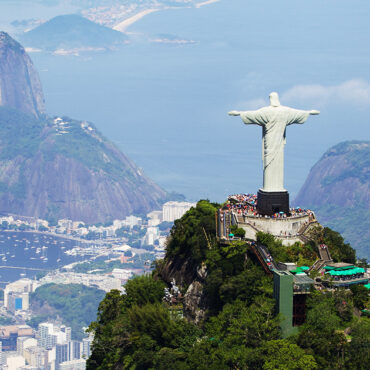
Awe Inspiring
When my daughter brings me an attitude from the gutter, I want to care so much for her, to empathize, to be in awe of her, like the newborn in […]

We can either have democracy in this country or we can have great wealth concentrated in the hands of a few, but we can’t have both
Louis Barndeis, US SUpreme Court Justice
John D. Rockefeller makes us think – robber baron. Larry Paige and Sergey Brin make us think – liberator. Rightly so we aren’t overwrought by inequality of wealth or power (position), but we are repulsed when we see people suffering or benefiting from unequal opportunity (rights). Our society’s at least subconscious ideal is Justice, not Equality. However, inequality of wealth and power serve as a sign-post where we stop to question the potential injustice.
When Americans face the prospect of being “ruled” by multiple Presidents from the same family within just a quarter century; when we live in a world where 85 individuals control more wealth than the world’s bottom 50% of the population, we begin to wonder whether there is a correlation between equality of position and equality of rights. Equality of position is not justice. If anything, it’s injustice, implying some artificially imposed limitation on people’s unique abilities and ambitions.

Larry Page and Sergey Brin have the natural ability, drive, and good fortune to build a Google and earn the just reward of $33 billion each for their efforts. John D. Rockefeller’s status as the richest man in US history was gained by unjust market and political manipulations of his monopolistic Standard Oil. We can vigorously debate either side of the above assertions, but the massive inequality represented in both these examples gives us cause to consider the justice or injustice implied in them.
It’s an offensive claim, but very little of our wealth and power has been earned without at least some distant blemish of Injustice. I like living in a zip code with high property taxes and resulting great schools, but the town was designed from the outset to be segregated. Many of my employees are victims of generations of subjugation by unscrupulous foreign powers and as right as it may be for me to pay them an above-market wage, I’m not sure I’m willing to sacrifice saving for my kids’ college education to do so. I enjoy my low mortgage payment even knowing it’s tied to the rising dollar likely bringing a financial crisis in some countries whose loans are denominated in dollars. I’m the beneficiary of a healthcare system where premiums are irrational, but I don’t want to pay more so others will be equal beneficiaries. These choices are the “peril and responsibility of our existence” because in making them, we are designing the systems and institutions that make way for those dreaded Horsemen of the Apocalypse of injustice…or not.
It is our best and worst characteristic as American society – our value for one another. Jefferson and Hamilton’s real debate in the Federalist Papers and the discussion that continues today is about the value of the average citizen versus the exceptional citizen, as it relates who governs or who has access to what opportunities. If there is anything truly exceptional about the United States, it has to do with this sense of the equal value of every individual.
A Just society values the individual based on something intrinsic to her humanness, not based on performance or position. We value the newborn child and dying grandfather, the homeless and poor, the wealthy and commercially productive. A Just society’s value for the individual derives from its belief in the individual’s implicit or explicit commitment to act beyond the confines of her own interests. Citizens of a Just society believe in the individual’s capacity to prioritize others over self, and they build institutions to facilitate that.
Making that leap to prioritizing others depends on losing ourselves in something greater than ourselves.

When my daughter brings me an attitude from the gutter, I want to care so much for her, to empathize, to be in awe of her, like the newborn in […]
Copyright Invoke Media | Copyright 2020
Post comments (0)